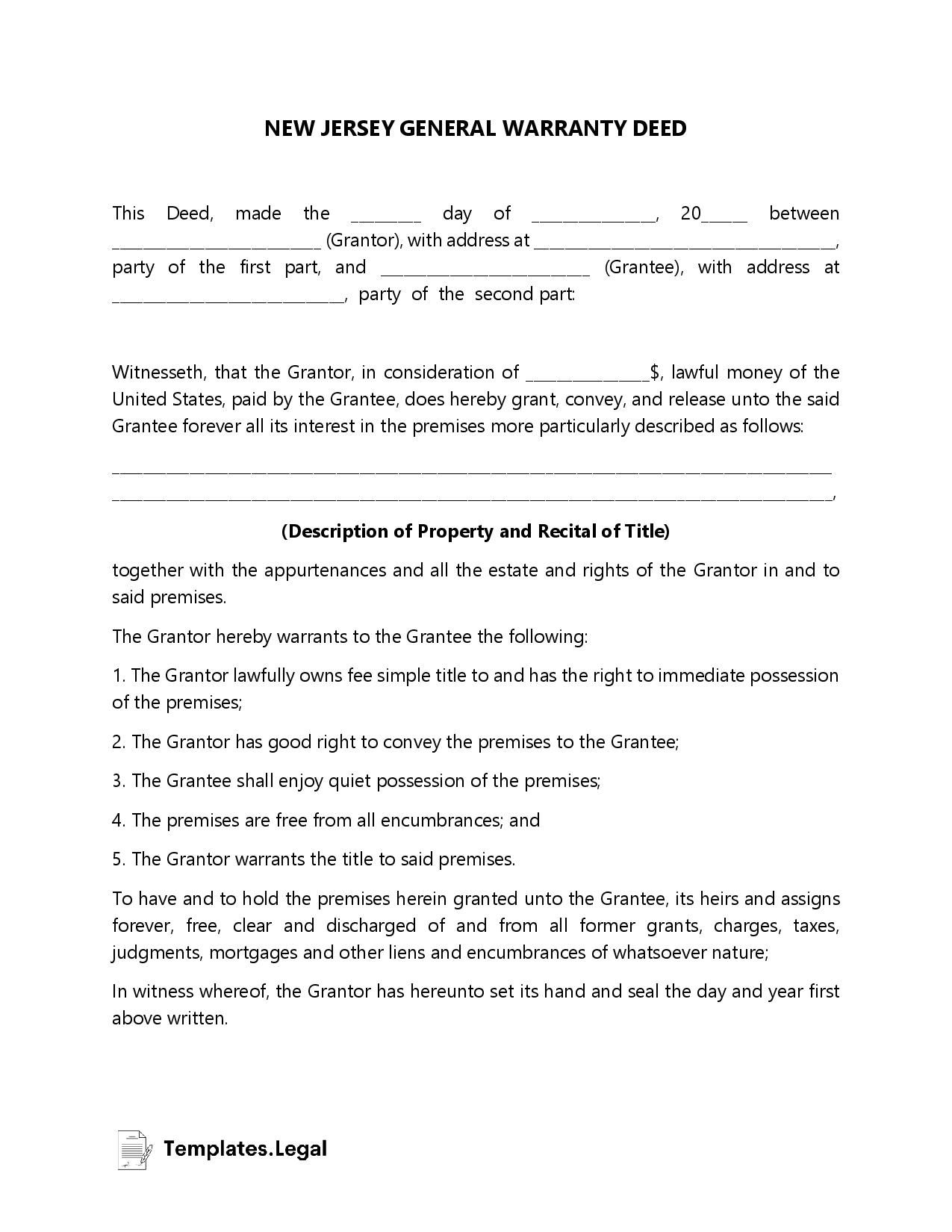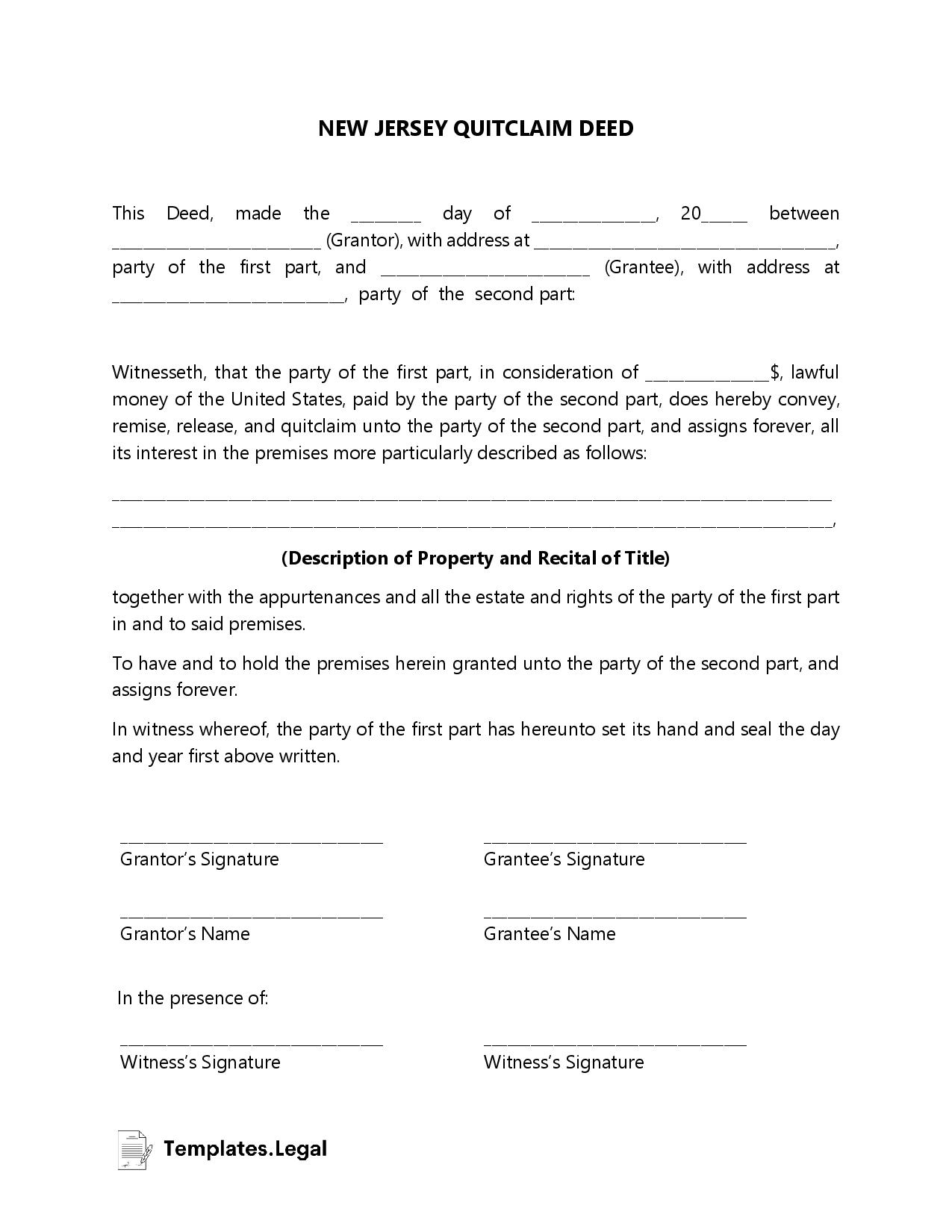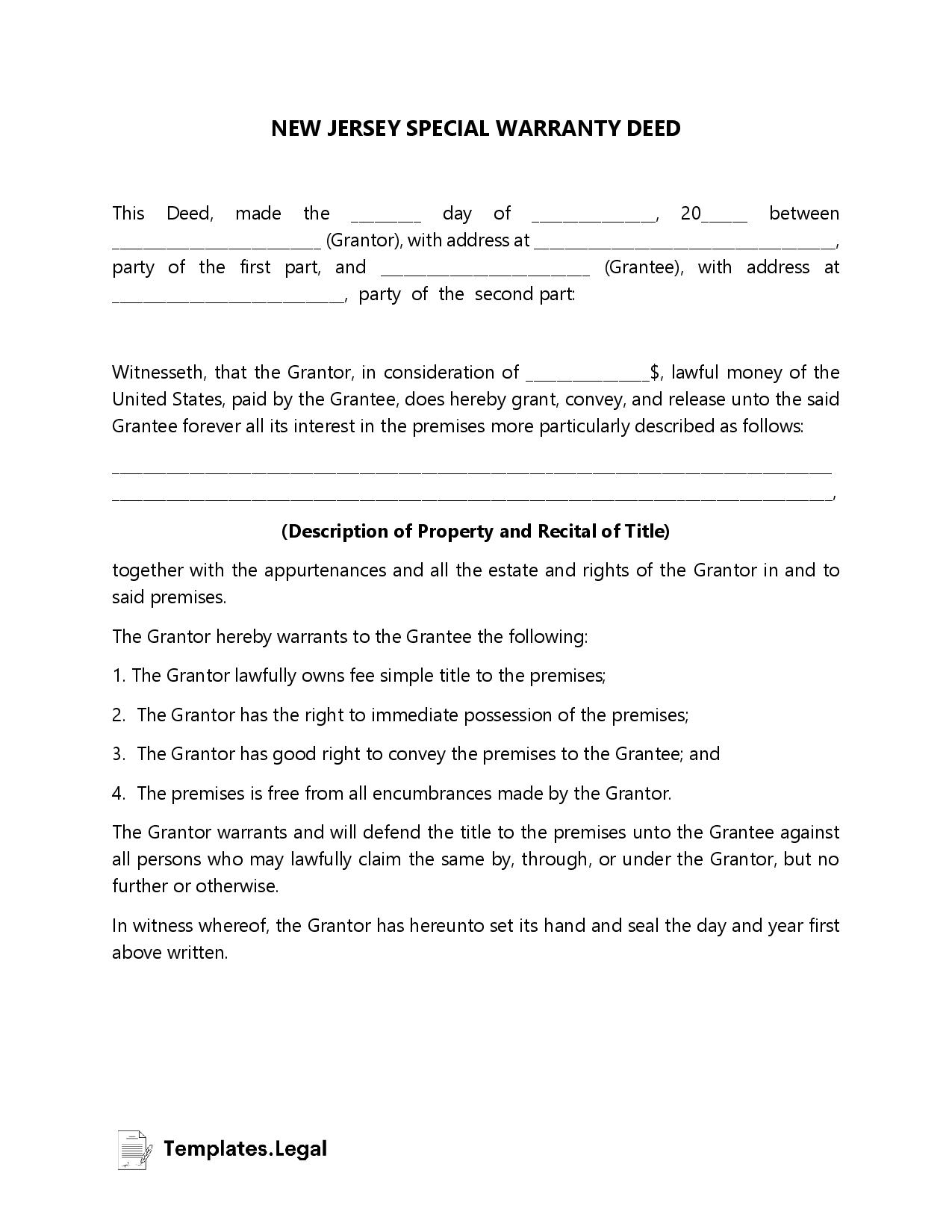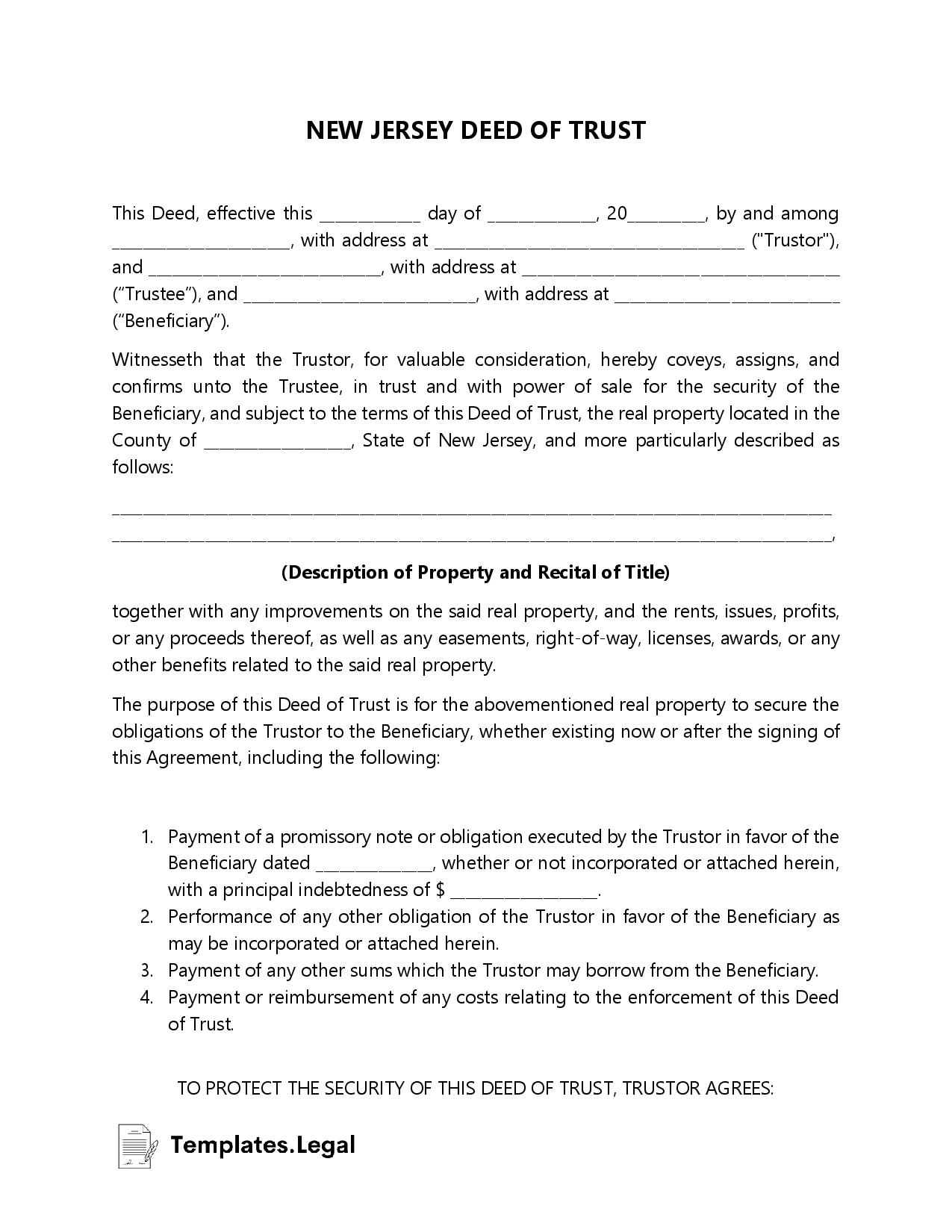New Jersey Deed Forms & Templates
A deed is a legal document that transfers title to a piece of property from its current owner (the “grantor”) to a new owner (the “grantee”). Different real estate transactions require different New Jersey deed forms. Here are some of the most commonly used deed forms in New Jersey.
New Jersey General Warranty Deed
A New Jersey general warranty deed does more than just transfer a piece of property to a new owner. It guarantees that the grantor gives a complete, defect-free, unencumbered ownership interest in real property to the grantee.
This guarantee extends to all prior grantors of the property as well. If the grantee later discovers defects or encumbrances that the grantor did not disclose, they may hold the grantor responsible for clearing the defects in the title.
New Jersey Quit Claim Deed
A quitclaim deed transfers a piece of real property from a grantor to a grantee, but without any guarantees. A New Jersey quitclaim deed transfers the title “as-is,” which may be incomplete, encumbered, or defective.
Because a quitclaim deed makes no guarantees to the grantee, it’s rarely used in real estate purchase transactions. The most common uses for a quitclaim deed are gifts between family members and transfers between former spouses in a divorce.
New Jersey Special Warranty Deed
A special warranty deed offers more guarantees than a quitclaim deed but fewer than a general warranty deed. A New Jersey Special Warranty Deed guarantees that the title is free from any undisclosed defects or encumbrances caused or suffered by the grantor.
This guarantee does not extend to prior owners, however. Undisclosed defects and encumbrances attached before the grantor took title to the property are not the responsibility of the grantor.
New Jersey Deed of Trust
A deed of trust is a type of deed that transfers part of a borrower’s ownership interest in real property to a lender.
The lender then becomes the trustee of the property as security for the loan. They can sell the property without a court order if necessary to collect on the loan if the borrower defaults.
New Jersey deeds of trust are not permitted. Instead, lenders in New Jersey may secure their loans using an instrument called a mortgage.
This is a very similar document to a deed of trust. However, under a mortgage, the lender still has to go through the court in a process called “foreclosure” to sell the property.
FAQs
Here are a few frequently asked questions about deeds in New Jersey.




